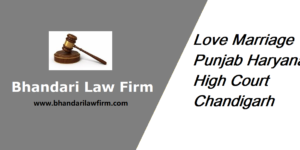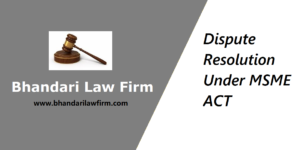Supreme Court Frames Extensive Guidelines Maintenance In Matrimonial Disputes
The bench of Justice Indu Malhotra and R. Subhash Reddy, JJ has framed the extensive guidelines for maintenance under the matrimonial disputes, covering overlapping jurisdiction under different enactments for
1)payment of maintenance,
2)payment of Interim Maintenance,
3)the criteria for determining the quantum of maintenance,
4)the date from which maintenance is to be awarded, and enforcement of orders of maintenance.
• BACKGROUND Maintenance Guidelines In Matrimonial Disputes
Rajnesh v. Neha, decided on 04.11.2020 by Hon’ble Supreme Court of India
The directions came in a case which revealed that the application for interim maintenance under Section 125 Cr.P.C. has remained pending before the Courts for seven years now, and there have been difficulties encountered in the enforcement of orders passed by the Courts, as the wife was constrained to move successive applications for enforcement from time to time.
The legislation which has been framed on the issue of maintenance is the Special Marriage Act, 1954, Section 125 of the Cr. P.C.,1973; and the Protection of Women from Domestic Violence Act, 2005 which provide a statutory remedy to women, irrespective of the religious community to which they belong, apart from the personal laws applicable to various religious communities.
Further, a Hindu wife may claim maintenance under the Hindu Adoptions and Maintenance Act 1956 , and also in a substantive proceeding for either dissolution of marriage, or restitution of conjugal rights, etc. under the Hindu Marriage Act, 1955 by invoking Sections 24 and 25 of the said Act.
The different enactments provide an independent and distinct remedy framed with a specific object and purpose. In spite of time frames being prescribed by various statutes for disposal of interim applications, in practice that in a vast majority of cases, the applications are not disposed of within the time frame prescribed.
Special Marriage Act, 1954
• Section 36 of this secular legislation, applicable to all persons who solemnize their marriage in India, provides that a wife is entitled to claim pendente lite maintenance, if she does not have sufficient independent income to support her and for legal expenses. The maintenance may be granted on a weekly or monthly basis during the pendency of the matrimonial proceedings. The Court would determine the quantum of maintenance depending on the income of the husband, and award such amount as may seem reasonable.
• Section 37 provides for the grant of permanent alimony at the time of passing of the decree, or subsequent thereto. Permanent alimony is the consolidated payment made by the husband to the wife towards her maintenance for life.
Also Read: Married Women Right To Live at In-Laws House
Hindu Marriage Act, 1955 Maintenance Guidelines In Matrimonial Disputes
• Sections 24 and 25 make provision for maintenance to a party who has no independent income sufficient for his or her support, and necessary expenses. This is a gender-neutral provision, where either the wife or the husband may claim maintenance. The prerequisite is that the applicant does not have independent income which is sufficient for her or his support, during the pendency of the lis.
• Section 24 of the HMA provides for maintenance pendente lite, where the Court may direct the respondent to pay the expenses of the proceeding and pay such reasonable monthly amount, which is considered to be reasonable, having regard to the income of both the parties. The proviso to Section 24 providing a timeline of 60 days for disposal of the application was inserted vide Act 49 of 2001 w.e.f. 24.09.2001.
• Section 26 of the HMA provides that the Court may from time to time pass interim orders with respect to the custody, maintenance, and education of the minor children.
Hindu Adoptions & Maintenance Act, 1956
HAMA is special legislation that was enacted to amend and codify the laws relating to adoption and maintenance amongst Hindus, during the subsistence of the marriage.
Section 18 provides that a Hindu wife shall be entitled to be maintained by her husband during her lifetime. She is entitled to make a claim for a separate residence, without forfeiting her right to maintenance. Section 18 read in conjunction with Section 23 states the factors required to be considered for deciding the quantum of maintenance to be paid. Under sub-section (2) of Section 18, the husband has the obligation to maintain his wife, even though she may be living separately. The right of separate residence and maintenance would however not be available if the wife has been unchaste, or has converted to another religion.
Also Read: Desertion As Ground For Divorce
Section 125 of the Cr.P.C Maintenance Guidelines In Matrimonial Disputes
The purpose and object of Section 125 Cr.P.C. are to provide immediate relief to an applicant. An application under Section 125 Cr.P.C. is predicated on two conditions :
• the husband has sufficient means; and
• “neglects” to maintain his wife, who is unable to maintain herself.
In such a case, the husband may be directed by the Magistrate to pay such a monthly sum to the wife, as deemed fit. Maintenance is awarded on the basis of the financial capacity of the husband and other relevant factors.
Under sub-section (2) of Section 125, the Court is conferred with the discretion to award payment of maintenance either from the date of the order or from the date of the application.
UNIFORM AND COMPREHENSIVE SUPREME COURT GUIDELINES
(a)Issue of overlapping jurisdiction
The Court noticed that while it is true that a party is not precluded from approaching the Court under one or more enactments, since the nature and purpose of the relief under each Act is distinct and independent, it is equally true that the simultaneous operation of these Acts, would lead to multiplicity of proceedings and conflicting orders.
“It is well settled that a wife can make a claim for maintenance under different statutes. For instance, there is no bar to seek maintenance both under the D.V. Act and Section 125 of the Cr.P.C., or under H.M.A. It would, however, be inequitable to direct the husband to pay maintenance under each of the proceedings, independent of the relief granted in a previous proceeding.”
The Court, hence, directed that in a subsequent maintenance proceeding, the applicant shall disclose the previous maintenance proceeding, and the orders passed therein, so that the Court would take into consideration the maintenance already awarded in the previous proceeding, and grant an adjustment or set-off of the said amount. If the order passed in the previous proceeding requires any modification or variation, the party would be required to move the concerned court in the previous proceeding.
(b) Payment of Interim Maintenance
At present, the issue of interim maintenance is decided on the basis of pleadings, where some amount of guess-work or rough estimation takes place, so as to make a prima facie assessment of the amount to be awarded. It is often seen that both parties submit scanty material, do not disclose the correct details, and suppress vital information, which makes it difficult for the Family Courts to make an objective assessment for grant of interim maintenance.
“While there is a tendency on the part of the wife to exaggerate her needs, there is a corresponding tendency by the husband to conceal his actual income.”
It was hence directed that the Affidavit of Disclosure of Assets and Liabilities shall be filed by both parties in all maintenance proceedings, including pending proceedings before the concerned Family Court / District Court / Magistrates Court, as the case may be, throughout the country.
Apart from this the Court also directed that in the first instance, the Family Court in compliance with the mandate of Section 9 of the Family Courts Act 1984, must make an endeavor for settlement of the disputes.
(c) Criteria for determining the quantum of maintenance
The objective of granting interim / permanent alimony is to ensure that the dependant spouse is not reduced to destitution or vagrancy on account of the failure of the marriage, and not as a punishment to the other spouse. Under the guidelines, it was held that
“The maintenance amount awarded must be reasonable and realistic, and avoid either of the two extremes i.e. maintenance awarded to the wife should neither be so extravagant which becomes oppressive and unbearable for the respondent nor should it be so meager that it drives the wife to penury. The sufficiency of the quantum has to be adjudged so that the wife is able to maintain herself with reasonable comfort.”
For determining the quantum of maintenance payable to an applicant, the factors which would weigh with the Court inter alia are Maintenance Guidelines In Matrimonial Disputes
• the status of the parties;
• the financial capacity of the husband, his actual income, reasonable expenses for his own maintenance, and dependant family members
• On termination of the relationship, if the wife is educated and professionally qualified, but had to give up her employment opportunities to look after the needs of the family being the primary caregiver to the minor children, and the elder members of the family.
• In the case where the wife is working, it cannot operate as a bar from being awarded maintenance by the husband. The onus is on the husband to establish with necessary material that there are sufficient grounds to show that he is unable to maintain the family, and discharge his legal obligations for reasons beyond his control.
• The living expenses of the child would include expenses for food, clothing, residence, medical expenses, education of children.
• Extra coaching classes or any other vocational training courses to complement the basic education must be factored in.
“Education expenses of the children must be normally borne by the father. If the wife is working and earning sufficiently, the expenses may be shared proportionately between the parties.”
• Serious disability or ill health of a spouse, child/children from the marriage/dependant relative who requires constant care and recurrent expenditure, would also be a relevant consideration while quantifying maintenance
*The aforesaid factors are however not exhaustive Maintenance Guidelines In Matrimonial Disputes
(d) Date from which maintenance is to be awarded
Even though a judicial discretion is conferred upon the Court to grant maintenance either from the date of application or from the date of the order in S. 125(2) Cr.P.C., it would be appropriate to grant maintenance from the date of application in all cases, including Section 125 Cr. P.C. In the practical working of the provisions relating to maintenance, there is a significant delay in the disposal of the applications for interim maintenance for years on end. It would therefore be in the interests of justice and fair play that maintenance is awarded from the date of the application. Maintenance Guidelines In Matrimonial Disputes
The rationale of granting maintenance from the date of application finds its roots in the object of enacting maintenance legislations, so as to enable the wife to overcome the financial crunch which occurs on separation from the husband. The financial constraints of a dependant spouse hamper their capacity to be effectively represented before the Court.
(e) Enforcement of orders of maintenance
Enforcement of the order of maintenance is the most challenging issue, which is encountered by the applicants. If maintenance is not paid in a timely manner, it defeats the very object of the social welfare legislation. Execution petitions usually remain pending for months, if not years, which completely nullifies the object of the law.
An application for execution of an Order of Maintenance can be filed under the following provisions :
(a) Section 28 A of the Hindu Marriage Act, 1956 Section 18 of the Family Courts Act, 1984 and Order XXI Rule 94 of the CPC for executing an Order passed under Section 24 of the Hindu Marriage Act (before the Family Court);
(b) Section 20(6) of the DV Act (before the Judicial Magistrate); and
(c) Section 128 of Cr.P.C. before the Magistrate’s Court.
The Court, however, was of the opinion that striking off the defense of the respondent is an order which ought to be passed in the last resort, if the Courts find default to be wilful and contumacious, particularly to a dependant unemployed wife, and minor children. Contempt proceedings for wilful disobedience may be initiated before the appropriate Court.
Hence, it was directed that the order or decree of maintenance may be enforced like a decree of a civil court, through the provisions which are available for enforcing a money decree, including civil detention, attachment of property, etc. as provided by various provisions of the CPC, more particularly Sections 51, 55, 58, 60 read with Order XXI.
CONCLUSIONMaintenance Guidelines In Matrimonial Disputes
In a significant judgment by a Bench of Justices Indu Malhotra and R. Subhash Reddy, the top court said women deserted by husbands were left in dire straits, often reduced to destitution, for lack of means to sustain themselves and their children.
The 67-page judgment by Justice Malhotra laid down guidelines for family courts, magistrates, and lower courts to follow while hearing the applications filed by women seeking maintenance from their estranged husbands.
The court said despite a plethora of maintenance laws, women were left empty-handed for years, struggling to make ends meet after a bad marriage.
Note: For any further information or any query you may contact us on 9855677966 or via email info@bhandarilawfirm.com



